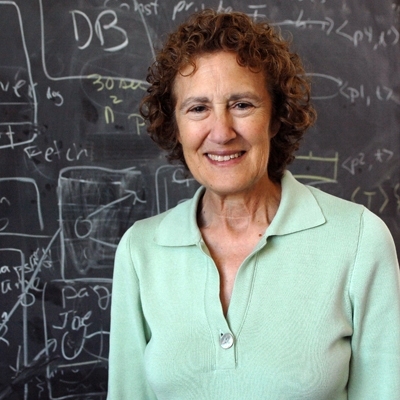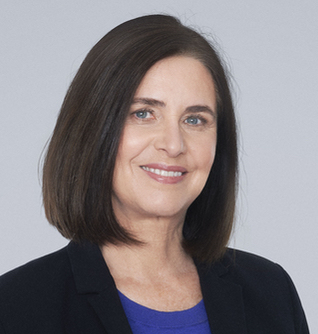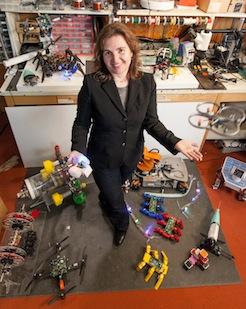 Best known for her groundbreaking work in the design of computer languages, CSAIL Professor Barbara Liskov has been shaping the field since she first discovered her interest in programming in the 1960’s. After earning her bachelor’s in mathematics from UC Berkeley, Professor Liskov took a job at the MITRE Corporation and spent time at Harvard working on language translation. Returning to her home state of California, Professor Liskov attended Stanford to study computer science, doing research on Artificial Intelligence alongside John McCarthy. She was one of the first women in the United States to earn a PhD in computer science, writing her graduate thesis on a computer program that could play chess.
Best known for her groundbreaking work in the design of computer languages, CSAIL Professor Barbara Liskov has been shaping the field since she first discovered her interest in programming in the 1960’s. After earning her bachelor’s in mathematics from UC Berkeley, Professor Liskov took a job at the MITRE Corporation and spent time at Harvard working on language translation. Returning to her home state of California, Professor Liskov attended Stanford to study computer science, doing research on Artificial Intelligence alongside John McCarthy. She was one of the first women in the United States to earn a PhD in computer science, writing her graduate thesis on a computer program that could play chess.
Returning to Boston to join MITRE again, she led major projects such as the Venus Operating System, which supported multiple users and was designed to test concepts in machine architecture. In 1972, she joined the MIT faculty as a Professor in the Laboratory for Computer Science (which would merge with the AI lab in 2003 to become CSAIL). At MIT, she created programming languages such as CLU, the first language to support data abstraction, and Argus, the first high-level language which supported the implementation of distributed programs. Now, as leader of the Programming Methodology Group, her research interests include Byzantine-fault-tolerant storage systems, peer-to-peer computing, and support for automatic deployment of software upgrades in large-scale distributed systems.
For her contributions to programming languages and system design, Professor Liskov won the Turing Award in 2008. She is a member of the National Academy of Engineering and a fellow of the American Academy of Arts and Sciences as well as the Association for Computer Machinery. Previous MIT President Susan Hockfield said of Professor Liskov, “her pioneering research has made her one of the world's leading authorities on computer language and system design.”
 CSAIL Professor Shafi Goldwasser was always interested in mathematics. With parents who encouraged her to pursue science, she went to Carnegie Mellon University for her undergraduate degree, intending to study math. However, a series of experiences led her to programming and algorithms, motivating her to attend the Computer Science School at UC Berkeley for her graduate work. While there, she studied under Turing Award winner Manuel Blum, attended the first Crypto conference in Santa Barbara where she met the future authors of the RSA cryptographic system, and studied alongside her future Turing Award co-recipient, CSAIL Professor Silvio Micali. Upon graduation, Professor Goldwasser came to MIT as a postdoc, joining the faculty in 1983. In 1997, she became the first RSA Professor of Electrical Engineering and Computer Science.
CSAIL Professor Shafi Goldwasser was always interested in mathematics. With parents who encouraged her to pursue science, she went to Carnegie Mellon University for her undergraduate degree, intending to study math. However, a series of experiences led her to programming and algorithms, motivating her to attend the Computer Science School at UC Berkeley for her graduate work. While there, she studied under Turing Award winner Manuel Blum, attended the first Crypto conference in Santa Barbara where she met the future authors of the RSA cryptographic system, and studied alongside her future Turing Award co-recipient, CSAIL Professor Silvio Micali. Upon graduation, Professor Goldwasser came to MIT as a postdoc, joining the faculty in 1983. In 1997, she became the first RSA Professor of Electrical Engineering and Computer Science.
Professor Goldwasser’s research has led to fundamental breakthroughs in cryptography, computational complexity, computational number theory, and probabilistic algorithms. Working with Professor Micali, she co-wrote landmark papers on topics such as probabilistic encryption and co-invented zero-knowledge proofs, which are a key tool in the design of cryptographic protocols. For this and other foundational research laying the theoretical groundwork of cryptography and creating new methods for efficient verification of mathematical proofs in complexity theory, Professor Goldwasser was the co-recipient of the 2012 Turing Award.
Now Professor Goldwasser leads the Cryptography and Information Security Group and the Complexity Theory Group at CSAIL. Her current research is focused on the development of tools which allow for the maximal use of modern computation while preserving the basic right to be left alone. She’s also studying the use of randomness in algorithm design and novel paradigms in complexity theory. Professor Goldwasser says that her favorite part of research is the “intellectual buzz” she gets when she figures out how to approach a problem.
 Director of CSAIL Professor Daniela Rus dreams of a future where “robots are so integrated in the fabric of human life that they become as common as smartphones are today,” she says on her website. After earning her bachelor’s in computer science from the University of Iowa, she attended Cornell University for graduate school. After attending a talk by John Hopcroft where he spoke about how the time had come for the grand applications of computer science, she joined his group to work on robotics, writing her PhD thesis on fine motion planning for dexterous manipulation—in other words, improving how robots grasp objects. After graduation, she joined the Dartmouth College Computer Science Department as a professor, transferring to MIT in 2004. In 2012, she became the director of CSAIL, where she has overseen a number of major projects and research initiatives such as the AI Accelerator Program, Machine Learning Applications, Future of Data, Trust, and Privacy, and the Toyota-CSAIL Joint Research Center.
Director of CSAIL Professor Daniela Rus dreams of a future where “robots are so integrated in the fabric of human life that they become as common as smartphones are today,” she says on her website. After earning her bachelor’s in computer science from the University of Iowa, she attended Cornell University for graduate school. After attending a talk by John Hopcroft where he spoke about how the time had come for the grand applications of computer science, she joined his group to work on robotics, writing her PhD thesis on fine motion planning for dexterous manipulation—in other words, improving how robots grasp objects. After graduation, she joined the Dartmouth College Computer Science Department as a professor, transferring to MIT in 2004. In 2012, she became the director of CSAIL, where she has overseen a number of major projects and research initiatives such as the AI Accelerator Program, Machine Learning Applications, Future of Data, Trust, and Privacy, and the Toyota-CSAIL Joint Research Center.
Today, Professor Rus’s main research focus is on the development of the science behind autonomy, with the long-term objective of bringing about her vision of ubiquitous robots augmenting work, supporting those with cognitive or physical impairments, and generally improving lives. Her research can be broadly split into two categories, studying the “mind” and “body” of future robots. Toward creating the artificial intelligence that will power future robotics, Professor Rus is increasing the ability of robots to reason, learn, and adapt to complex tasks with the invention of innovative neural network models like liquid time-constant networks and also the introduction of new machine learning methods like training in simulation. On the hardware side, she’s studying concepts like soft robots, robot compilers, and robots that self-configure.
Professor Rus is a Class of 2002 MacArthur Fellow; a fellow of ACM, AAAI, and IEEE; a member of the National Academy of Engineering and the American Academy of Arts and Sciences; and the recipient of the 2017 Engelberger Robotics Award from the Robotics Industries Association. Beyond her role as Director, she also leads the CSAIL Distributed Robotics Laboratory. Speaking about her work, Professor Rus says, “I love the fact that here at CSAIL, everyone lives in the future.”
